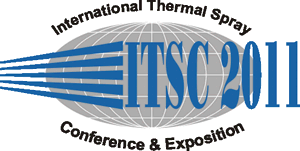
|
2985 |
|
Interface reactions in composite coatings deposited by cold spray and detonation spraying |
|
Igor Smurov* / Ecole Nationale d'ingénieurs de Saint-Etienne (ENISE), France Volf Leshchinsky / University of Windsor, Canada Nikolay Ryashin/ Ecole Nationale d'Ingénieurs de Saint-Etienne (ENISE), DIPI Laboratory, France Inna Yadroitseva/ Ecole Nationale d'Ingénieurs de Saint-Etienne (ENISE), DIPI Laboratory, France Alexandra Belousova/ Ecole Nationale d'Ingénieurs de Saint-Etienne (ENISE), DIPI Laboratory, France |
|
Deposition of Metal Matrix Composites (MMC) has been the subject of extensive research in the recent years. The desired functional properties of a composite coating can be achieved by analyzing and controlling the major structural processes taking place during deposition. The latter are reactions at the particle-particle and particle-substrate interfaces which can be controlled by applying advanced spraying technologies. Cold Spray (CS) and Computer Controlled Detonation Spraying (CCDS) are well-proven reliable methods for deposition of composite coatings. The energy (thermal and kinetic) imparted to the particles-in-flight by CS and CCDS allows initiating interface reactions that will define distinct properties of the deposited composite layers. The applied spraying technologies are characterized by different ratio of thermal-to-kinetic energy that results in different conditions of the compounds interaction. The objective of the present study is to define the effect of CS and CCDS technologies on structure and properties of Cu, Al and Ti-based composite coatings by analyzing intermetallic reactions occurring during the process. It is shown that both CS and CCDS composites present differently sized zones of interfacial reactions. Mechanical behavior of the obtained composites is analyzed to determine the influence of the interfacial properties on particulate-reinforced MMC. |